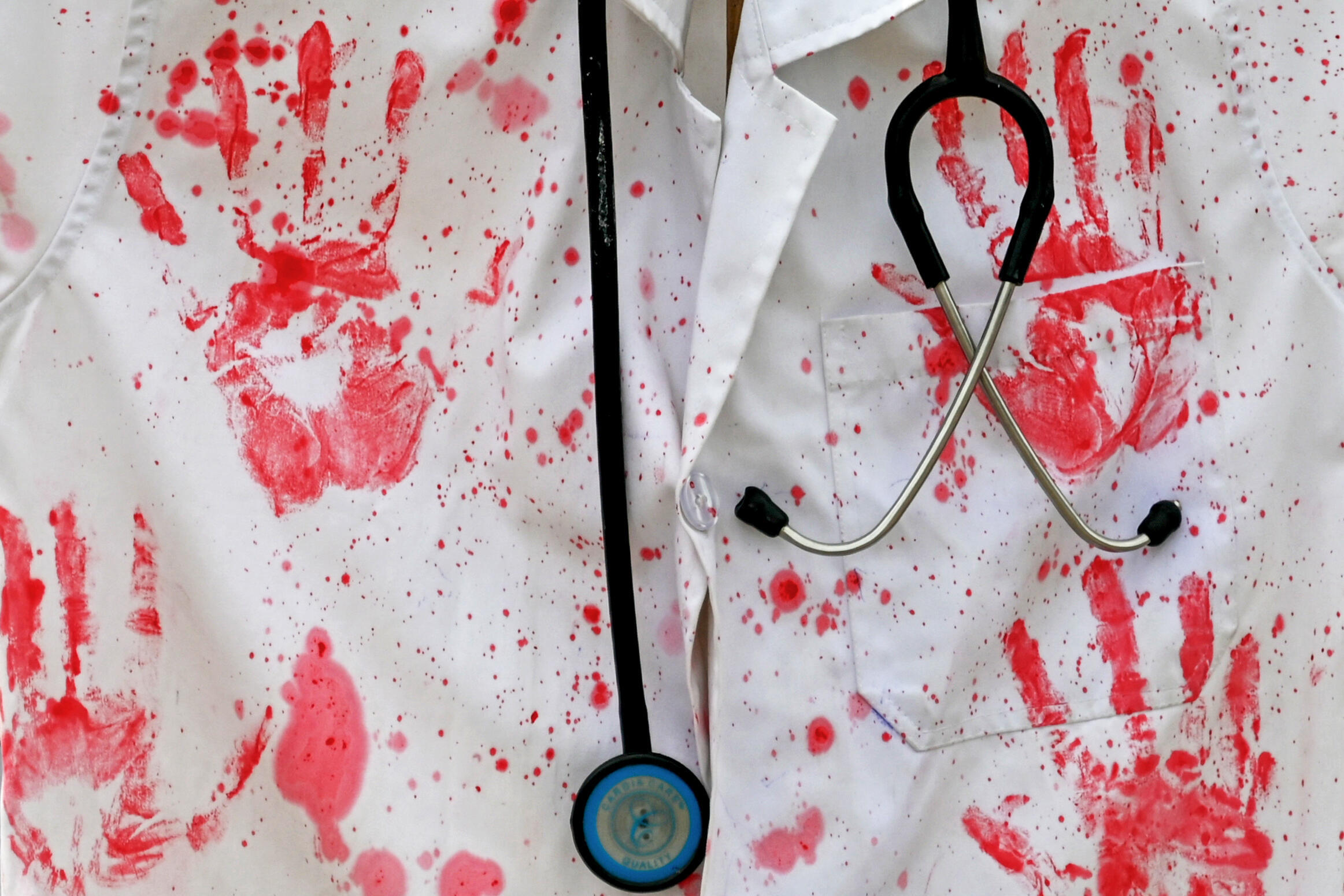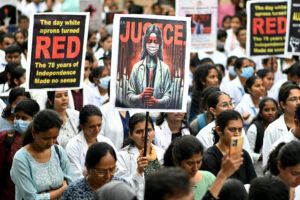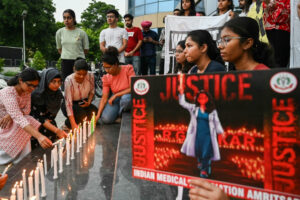World News
Indian female medics speak up about brutal murder, calling it “abuse every day.”

For 28-year-old Indian physician Radhika, saving lives was always her dream, but following the horrific rape and death of a colleague, her personal safety has taken precedence.
The body of a 31-year-old woman doctor was discovered earlier this month, bruised and bloodied, at the government-run hospital where Radhika works in the eastern city of Kolkata, igniting outrage.
Although the incident resulted in protests and medical strikes, it also focused outrage on the lack of procedures that allow female doctors to operate without fear. One guy has been imprisoned as a result of the attack.
“Two days prior to this incident, I was working at night at R.G. Kar Medical College and Hospital in Kolkata,” Radhika stated.
“She rested whenever and wherever she could, just like any of us would.”

The assassinated physician, dubbed “Abhaya” or “fearless” by demonstrators, has not yet been given a legal name. She was discovered in the seminar hall of the teaching hospital, indicating that she had taken a break during her lengthy shift there.
Long working hours with little time for food or relaxation, according to Radhika, whose name has been changed out of concern for consequences at her place of employment, are commonplace.
“Any of us could have been this, and any of us still could be this,” she continued.
All too frequent attacks
Tens of thousands of common Indians have participated in protests, expressing their outrage at the ongoing problem of violence against women as well as the lack of safe working conditions for them.
In India, women comprise about 30 percent of doctors and 80 percent of nurses, according to the charitable organization Dasra.
It is all too typical for female medics to be attacked.
With the statement that the brutality of the death had “shocked the conscience of the nation,” the Indian Supreme Court on Tuesday established a national task team to investigate ways to improve security for healthcare professionals.
The court judgment stated, “It is a matter of serious concern that medical establishments lack institutional safety norms against both violence and sexual violence against medical professionals.”
It brought attention to the absence of CCTV and the inability to check hospital visitors for weapons.
At Bengaluru’s KC General Hospital in the southern city, medical superintendent Indira Kabade expressed concern about her staff’s safety returning home.
Kabade stated, “We never know if anyone is following them from the hospital,” and she, along with many of her female coworkers, desired “airport-like security,” which would include police officers stationed on campus.
“There is a need to rethink workplace safety, even though we are working nonstop to save lives,” Kabade stated.
The brutal manner in which the doctor was killed has led to analogies with the horrifying 2012 Delhi bus gang rape and murder of a young woman.

In 2022, there were around 90 reported cases of rape every day in the 1.4 billion-person nation.
unkempt restrooms
Weary physicians take short naps on chairs or the floor when they can.
“Their bodies are simply too exhausted to continue pushing,” Radhika remarked.
Doctors have their own restrooms, while some are unlocked and require sharing by both sexes.
When she was sleeping, two men burst into the room, and she detailed the terrifying incident.
She said, “I was really scared.”
Poor sanitation, which frequently consists of one bathroom for male and female medics, is an example of how the government has neglected to provide even the most basic facilities.
According to Radhika, the situation was especially concerning for the women who were menstruating.
Doctor Rubeena Bhat stated that several medical professionals in Kashmir, which is located in the Himalayas, would prefer to use the restrooms in nearby homes.
She stated, “It’s that bad.”
“Daily abuse”
Thiruvananthapuram, a city in the southern state of Kerala, is home to a female doctor who said she and her coworkers endure daily abuse, ranging from verbal insults to physical molestation.
“It has no end,” the woman declared.
The medical society has pushed female physicians to take part in self-defense workshops.
The physician from Kerala remarked, “Some people refer to doctors as gods or angels.”
Thus, we believe that crimes cannot harm us. We are all terrified when a crime of this nature occurs at a location that we believe to be the safest.
Though Radhika’s safety is still a concern, she is confident about her future.
“I’ll fight and stay in the medical field,” she declared.

